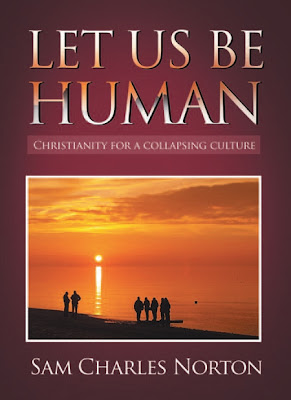1. Our Lord Jesus Christ was asked what the most important commandment was and replied “Love the Lord your God with all your heart and with all your soul and with all your mind.’ This is the first and greatest commandment.” (Matthew 22.37-38) As followers of Jesus Christ we are called to hold fast to this commandment, giving everything to God and not letting anything else take the place of God in our lives.
2. Furthermore, our Lord Jesus Christ said “You cannot serve both God and Mammon” (Matthew 6.24). Jesus explicitly teaches that there is a tension between the demands of the first commandment and fidelity to God, and the demands that may be made by the needs of any local political economy.
3. Surveying the present state of our societies and economies it is clear that, as a people, we have succumbed to the worship of Mammon, and that it is the duty of all faithful Christians to resist such worship, to repent of our behaviour, and to seek anew the Kingdom of God. The fruits of such idolatry are clear: the injustice and unemployment and waste of human talents; the corruption of our political leadership and their collusion with immoral financial practices; the depredation and degradation of our natural environments and the exhaustion of our natural resources; the inevitable wars and other crises that arise from the systematic fostering of base human appetites and the refusal to compromise our ways of life, and pursue a more equitable sharing of the gifts bequeathed to us.
4. As part of my pursuit of faithful Christian discipleship I therefore resolve to abandon the idolatry of “economic growth”; to reject the use of such language in my own speech; to repudiate that language when used by others; to bring people’s attentions to the way in which such idolatry increases human suffering; and above all, to seek to love God with all my heart, soul, mind and strength, trusting that in returning to the Lord I will indeed find mercy, and that he will freely pardon me of my offenses.
Background notes
This was inspired by the Ash Wednesday declaration of Operation Noah. That declaration was primarily concerned with issues around climate change, seeking to make action to combat that perceived problem as a status confessionis – in comparison with the Barmen declaration, which focussed German church resistance to the idolatry of national purity developed by the Nazi party.
I believe that we are indeed in a similar situation to that of the churches in Germany in the 1930s. Patterns of behaviour are in play that are leading to catastrophe if not addressed. However, I am not able to sign up to the Operation Noah declaration. That is because I believe that climate change is not the issue that needs to be addressed. The science of climate change is nowhere near strong enough to be considered for status confessionis, and even if it was certain, it only scratches the surface of the relevant idolatry. That is, climate change could be solved overnight, and the idolatry of Mammon would not be affected. It is the idolatry of Mammon that is at the root of this crisis of our time, and if we address that, then we also address climate change in so far as that is necessary.
For a more substantial discussion of the theology behind this declaration, see my book Let us be Human: Christianity for a collapsing culture.
If you agree with this declaration, please do make it your own.





